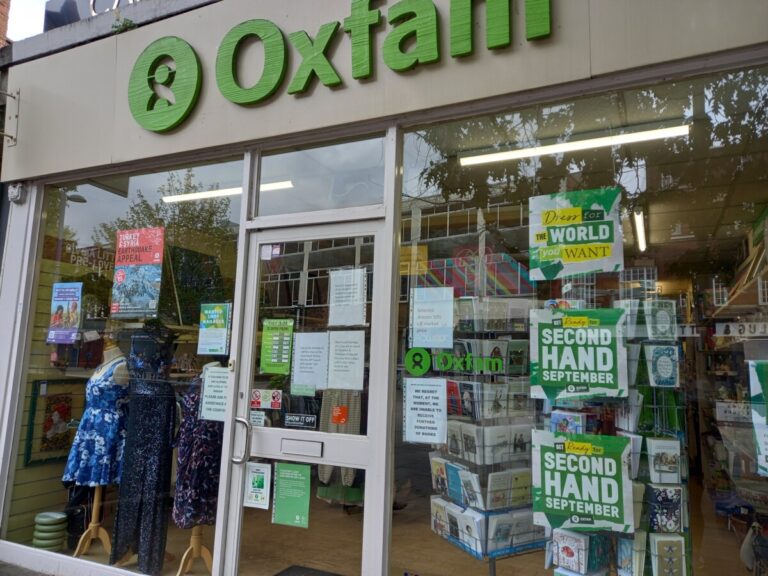Oxfam workers set to strike In December over pay

Nearly 500 Oxfam GB workers are set to strike for 17 days throughout December for the first time in the charity’s 81-year history, Unite has announced.
Oxfam staff across the charity’s shops, offices and Oxford headquarters are protesting against average wages at Oxfam, which it says, have been slashed by 21% in real terms since 2018.
Oxfam’s last reported cash reserves stood at £44.6 million in 2022. Unite says that this is the highest they have been in at least five years and at the very top of the acceptable range the charity has for reserves, which is between £35 and £45 million.
Advertisement
The workers voted by 83% in favour of strike action in a ballot with an 82% turnout. The vote came after they rejected a pay offer of £1,750 or 6% (whichever is higher), plus a one-off taxed payment of £1,000 for the lowest earners.
Unite also says the charity has repeatedly refused to enter fresh negotiations and that it also understands Oxfam is looking at using unpaid volunteers during the strike action.
Unite general secretary Sharon Graham said:
“Oxfam wants to end poverty and says it is on the side of unions. Yet its own workers report having to use foodbanks, it refuses to engage with the only union representing its workforce and it is considering using unpaid labour to break a strike. This is rank hypocrisy from an organisation that should know better.”
“Oxfam is an extremely wealthy organisation and can afford to put forward an acceptable offer without impacting its charity work in the slightest. Its workers have their union’s total and unflinching support as they strike to make sure that happens.”
Oxfam’s total income for 2022 was £373 million, while its expenditure was £329mn. Meanwhile, Unite says that a recent survey of Oxfam workers found that in the last year: 8% had used foodbanks, 22% had not been able to pay their rent and 34% have had to choose between heating their homes and feeding their families.
The strike action
The workers will take strike action impacting Oxfam offices and more than 200 shops on 17 days: 8, 9, 14, 15, 16, 17, 20, 21, 22, 23, 24, 26, 27, 28, 29, 30 and 31 December. Industrial action is set to intensify if the dispute is not resolved, according to Unite.
On the first day of strike action, workers will form a picket outside of Oxfam’s headquarters in Oxford. On the second day of strikes, a picket will be held outside Oxfam’s first ever shop, also in Oxford, which opened in 1948.
Unite regional coordinating officer Jamie Major said:
“Like many other employers in the charity sector, Oxfam exploits its workers’ commitment to its aims by not paying them properly. That Oxfam is even thinking of using unpaid labour to break the strike and refuses to talk to its workers’ union, shows this is an organisation that is in danger of losing its way.
“Our members are striking as a last resort and Unite’s door remains open for talks at any time to resolve this dispute.”
Oxfam response
An Oxfam GB spokesperson said:
“We are obviously disappointed that Unite members have voted to strike. We plan to meet with Unite to discuss how we can move forward.
“We are acutely aware of the pressures colleagues face as a result of the rising cost of living and we have done what we can to address this.
“We chose to bring forward paying the latest real Living Wage increases, and prioritised lower paid colleagues in this year’s award.
“We deeply regret that we could not do more but the settlement Unite is asking for is simply not affordable for Oxfam at a time when many of the communities we work with around the world are also facing sharply rising costs.
“We will do everything possible to minimise the impact on our work and to support colleagues over the coming weeks.
“Oxfam needs reserves to ensure that we can continue to fight poverty during financial shocks such as the pandemic when our shops were closed and fundraising was difficult. We cannot use these savings to fund higher wages that will need to be paid year after year – what happens when they run out?”




